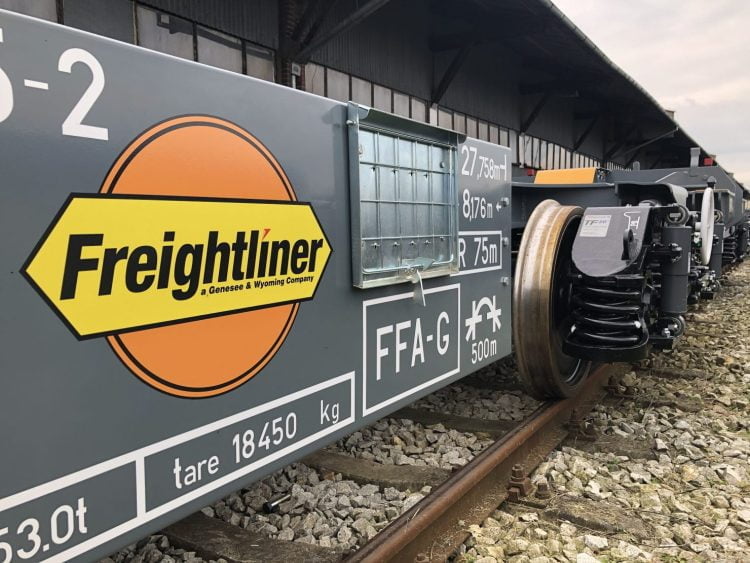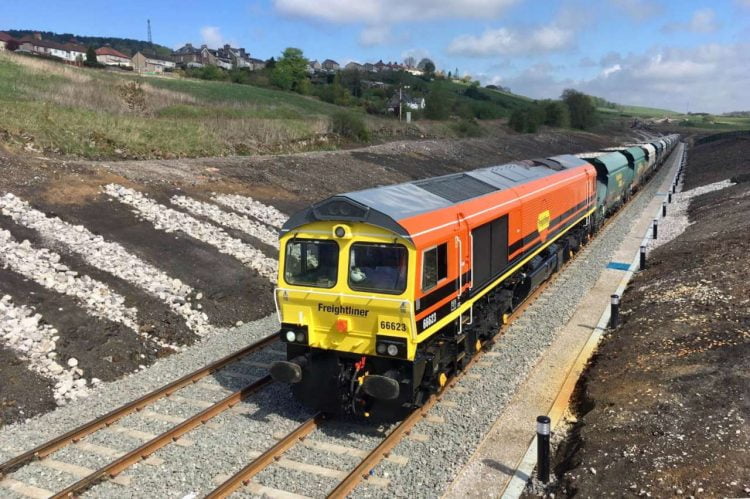Freightliner calls on government to aim to treble rail freight
Railway freight operator Freightliner[1] has called on the government to set a long-term target to increasing rail freight threefold by 2050.
Describing the target as “ambitious”, Freightliner believes that it would give confidence to private companies to make significant investments in long-term assets that would enable the sector to grow.
Trebling rail freight would remove twenty million Heavy Goods Vehicles (HGVs) journeys from motorways each year, reducing carbon dioxide emissions by 2.5 million tonnes – the equivalent of flying around the world 300,000 times. A major shift of freight from road to rail would also reduce congestion and road traffic accidents.
 Credit: Freightliner
Credit: Freightliner
Only around nine per cent of freight is moved by rail in Great Britain, even though rail can quickly and efficiently transport many essential goods and supplies, including carrying containers to and from deep-sea ports and inland terminals and moving bulk freight such construction materials, aggregates and cement.
Shifting freight from road to rail is crucial to meeting the target of net zero greenhouse gas emission by 2050. Each freight train removes up to 129 HGVs from Britain's roads. Container trains remove up to 52 HGVs. For each tonne of freight moved by rail instead of road, carbon emissions reduce by more than three-quarters (76%). Where operators use electric locomotives, this contributes to net zero emissions as the national grid decarbonises.
 Credit: Freightliner
Credit: Freightliner
Freightliner is calling on the government to financially support private operators in three key areas:
- halving the track access charges that freight operators pay to run trains on the network
- doubling the modal shift grant that businesses can access to support using rail
- investing in the rail network to ensure sufficient capacity on busy rail corridors to allow more freight trains to run.
Freightliner plans to showcase opportunities and challenges facing the rail freight sector during the Climate Show, including the impact of climate change on the resilience of the rail network, the impact of high electricity prices, and the need for more capacity across the UK rail network, especially in the aftermath of the abandonment of HS2[2] north of Birmingham.
Louise Ward, Safety and Sustainability Director, G&W UK/Europe comments, “We're not just calling on the government for support, we are also setting our own sustainability targets and roadmaps within Freightliner, for the benefit of our customers and our organisation”.
“This includes expanding our use of electric freight trains as well as investments in alternative fuels, such as hydrotreated vegetable oil (HVO), and developing new technologies for future locomotives. As the largest freight operator of electric trains in the UK, we want to increase the number of electric services, but to do so requires electricity costs to be affordable and some of today's gaps on the rail network to be electrified”.
References
- ^ Posts tagged with Freightliner (www.railadvent.co.uk)
- ^ Posts tagged with HS2 (www.railadvent.co.uk)